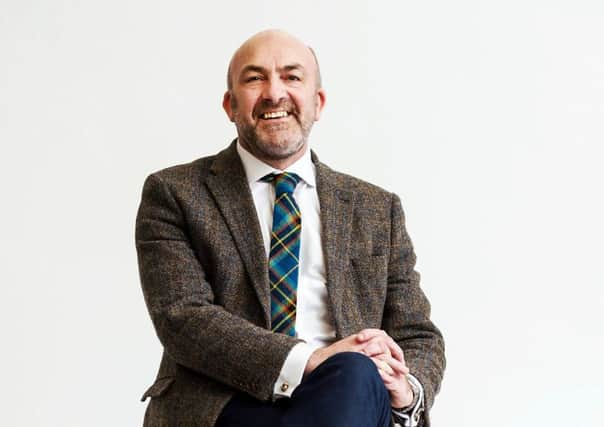Comment: Preparing for a circular future


Our role at YES (Young Enterprise Scotland) is to make sure that young people going through the education system now are prepared for what lies ahead, but it’s difficult to provide for that with so much uncertainty in the air.
One area gaining momentum is the concept of the circular economy.
Advertisement
Hide AdAdvertisement
Hide AdA lot of us will think of “the economy” as an amorphous concept that we feed into with the work that we do, rather than something we can control ourselves. But the circular economy model helps place that control in our hands by encouraging us to eliminate waste, reduce dependency on natural resources, and address the carbon impact of production.
The Ellen MacArthur Foundation reckons the circular economy is all about rebuilding capital – financial, manufactured, human, social and natural – and creating an interconnected system where all resources are used as effectively as possible. It aims to keep products, parts and materials in the economy for as long as possible, using the least amount of resources.
The Waste and Resources Action Programme (WRAP) estimates that if the circular economy approach is adopted, we could create up to three million jobs across Europe by 2030. Insiders have also said that adopting circular economy principles could be worth up to £1.5 billion to Scotland’s economy and could save around 11 million tonnes of greenhouse gases per year by 2050.
A circular economy is about making, using and remaking, so it leads to growth in sectors like remanufacturing, maintenance, repair, recycling and intelligent design. If this is where the jobs will be in 2030, it’s vital that we introduce young people to the concept.
In partnership with the Scottish Power Foundation, we are running a Circular Economy Challenge in Scottish schools. This encourages pupils to consider how businesses function using finite resources, raises awareness of local and global environmental issues and prepares them for work within the circular economy.
We plan to provide an enhanced programme of interactive activities again next year. As a precursor to that, we’re proud to be involved in the Circular Economy Hotspot Scotland event, hosted by Zero Waste Scotland, from 30 October to 1 November.
The event showcases Scotland’s best circular economy businesses and looks at how Scotland naturally lends itself to progression in a circular economy.
No matter how the overall economy shapes up over the next decade, if Scotland and its young people get into the circular economy cycle now, I’m confident we’ll be able to roll with whatever comes along.
- Geoff Leask, chief executive, Young Enterprise Scotland